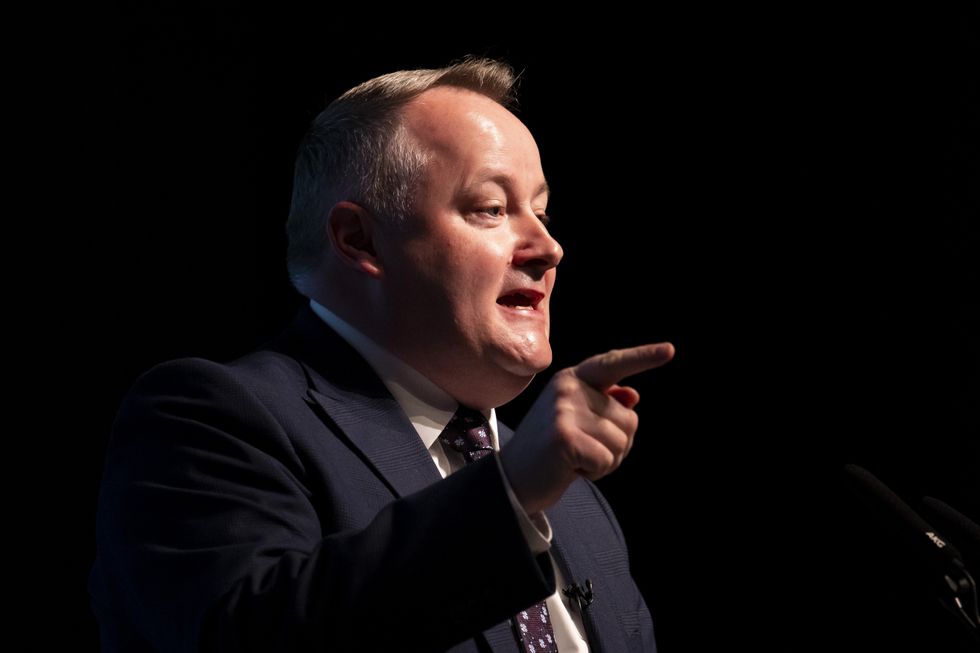Susanna Siddell
Guest Reporter
A Welsh council has unveiled plans to take an axe to English language education in a desperate bid to boost the number of Welsh speakers.
Gwynedd - where most speak Welsh - intends to slash English-based education across an overwhelming majority of secondary schools in the region to promote the regional dialect.
The proposed changes would "remove bilingualism and bilingual teaching" to drive Welsh to become the "principal" language deployed in schools, the council explained.
The new policy would require students to receive around 70 per cent of their education in Welsh - despite less than 30 per cent of the Welsh population being able to speak the language.

The proposed legislation has come under fire after Welsh Conservatives chastised the council’s plan to bow to "linguistic zealots".
Declaring his party’s staunch opposition to the plans, the Tory Senedd leader Darren Millar warned of the "danger" that it might "push people away from the Welsh language".
He added that it was "totally unacceptable" to "axe the opportunity for parents and pupils to choose to be educated in English-medium schools".
He blasted: "While I fully support access to Welsh-medium education in all parts of Wales, linguistic zealots should remember that there are two official languages in our country that all local councils and education authorities should cater for; English and Welsh."
Meanwhile, Gwynedd's cabinet member for education Dewi Jones insisted that it was time for the legislation to be updated, saying: "There have been linguistic changes in the county and the lives of young people are very different now compared to 1984.
LATEST DEVELOPMENTS:
"English, as a subject, will continue to be taught in English of course and parts of other subjects as well as extra-curricular activities."
Jones explained that an immersion programme for those new to the language would be implemented as a number of schools progress towards a "system of Welsh-medium education".
Further support would be deployed to the necessary institutions, including Ysgol Friars, Ysgol Uwchradd Tywyn and Bangor's Catholic Our Lady's School to help them on their way to become a mostly-Welsh school.
Meanwhile, students with additional learning support are due to receive "equal linguistic opportunities in accordance with the policy".
In primary schools, pupils will receive the whole of their curriculum in Welsh while those from Year 3 onwards would be taught 80 per cent in Welsh.

Welsh student Jade Lambsdale appreciated that English as a second language was "very useful", adding that a "bilingual brain helps you speak other languages in turn".
However, one Welsh speaker concurred with the local authority, telling the BBC: "It’s important that the language is promoted and that children leave school confident in their Welsh and English. I think it's to be welcomed."
Meanwhile, Welsh resident Tony Walkden split the difference, arguing that parents should be allowed to send their child to a mostly-Welsh or English school as they so wish.
"I've got grandchildren that are fluent in both languages. I think you should have a choice," he said.
Find Out More...
Gwynedd - where most speak Welsh - intends to slash English-based education across an overwhelming majority of secondary schools in the region to promote the regional dialect.
The proposed changes would "remove bilingualism and bilingual teaching" to drive Welsh to become the "principal" language deployed in schools, the council explained.
The new policy would require students to receive around 70 per cent of their education in Welsh - despite less than 30 per cent of the Welsh population being able to speak the language.

The proposed legislation has come under fire after Welsh Conservatives chastised the council’s plan to bow to "linguistic zealots".
Declaring his party’s staunch opposition to the plans, the Tory Senedd leader Darren Millar warned of the "danger" that it might "push people away from the Welsh language".
He added that it was "totally unacceptable" to "axe the opportunity for parents and pupils to choose to be educated in English-medium schools".
He blasted: "While I fully support access to Welsh-medium education in all parts of Wales, linguistic zealots should remember that there are two official languages in our country that all local councils and education authorities should cater for; English and Welsh."
Meanwhile, Gwynedd's cabinet member for education Dewi Jones insisted that it was time for the legislation to be updated, saying: "There have been linguistic changes in the county and the lives of young people are very different now compared to 1984.
LATEST DEVELOPMENTS:
- FURY as Labour BANS meal deals in obesity crackdown - ‘nanny state nonsense!’
- 'Total waste of money!' Labour forks out £10k on 'bonkers' project to 'decolonise' Welsh cakes
- Migrant illegally flew into different airports to use NHS before flashing traffic warden over ticket
"English, as a subject, will continue to be taught in English of course and parts of other subjects as well as extra-curricular activities."
Jones explained that an immersion programme for those new to the language would be implemented as a number of schools progress towards a "system of Welsh-medium education".
Further support would be deployed to the necessary institutions, including Ysgol Friars, Ysgol Uwchradd Tywyn and Bangor's Catholic Our Lady's School to help them on their way to become a mostly-Welsh school.
Meanwhile, students with additional learning support are due to receive "equal linguistic opportunities in accordance with the policy".
In primary schools, pupils will receive the whole of their curriculum in Welsh while those from Year 3 onwards would be taught 80 per cent in Welsh.

Welsh student Jade Lambsdale appreciated that English as a second language was "very useful", adding that a "bilingual brain helps you speak other languages in turn".
However, one Welsh speaker concurred with the local authority, telling the BBC: "It’s important that the language is promoted and that children leave school confident in their Welsh and English. I think it's to be welcomed."
Meanwhile, Welsh resident Tony Walkden split the difference, arguing that parents should be allowed to send their child to a mostly-Welsh or English school as they so wish.
"I've got grandchildren that are fluent in both languages. I think you should have a choice," he said.
Find Out More...
